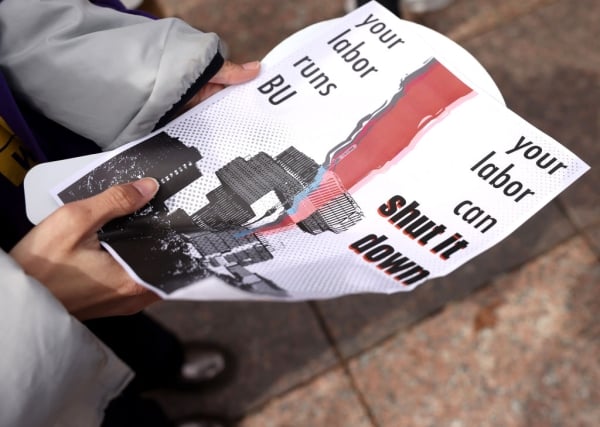The ongoing graduate student strike at Boston University has sent shockwaves through the campus community, impacting not only the graduate students themselves, but also the undergraduates who rely on them for their education and support.
The strike, which began on October 15th, revolves around demands for better pay, benefits, and workplace protections for BU’s Teaching and Research Assistants. These graduate students play a crucial role in the university’s operations, working closely with undergraduate students as instructors, mentors, and researchers.
For many undergraduates, the strike has disrupted their academic experience and added stress to an already challenging semester. Classes taught by graduate student instructors have been canceled, leaving students scrambling to find alternative ways to complete their coursework. Research projects that rely on graduate student assistance have been put on hold, causing delays and uncertainty for undergraduates who depend on these projects for their academic success.
In addition to the disruption in academics, the strike has also had a psychological impact on undergraduates. Many students feel caught in the middle of a dispute that they have no control over, leading to feelings of anxiety, frustration, and helplessness. The uncertainty surrounding how long the strike will last and what the ultimate outcome will be only adds to the stress that undergraduates are already facing in the midst of a global pandemic.
Furthermore, the strike has raised important questions about the role and value of graduate student labor within the university. As undergraduates witness firsthand the impact that graduate student instructors have on their education, many are starting to question why these individuals are not provided with fair compensation and benefits for their work. The strike has sparked conversations about the need for greater recognition and support for graduate students, who are often the backbone of teaching and research at universities across the country.
As the strike at BU continues, it is clear that the impact is being felt not only by the graduate students themselves, but also by the undergraduates who depend on them. It is crucial for the university administration to address the concerns of the striking graduate students in a timely and fair manner, in order to restore normalcy to the academic experience for all students involved. Only then can the BU community move forward and work towards a more equitable and inclusive future for all members of the university.


